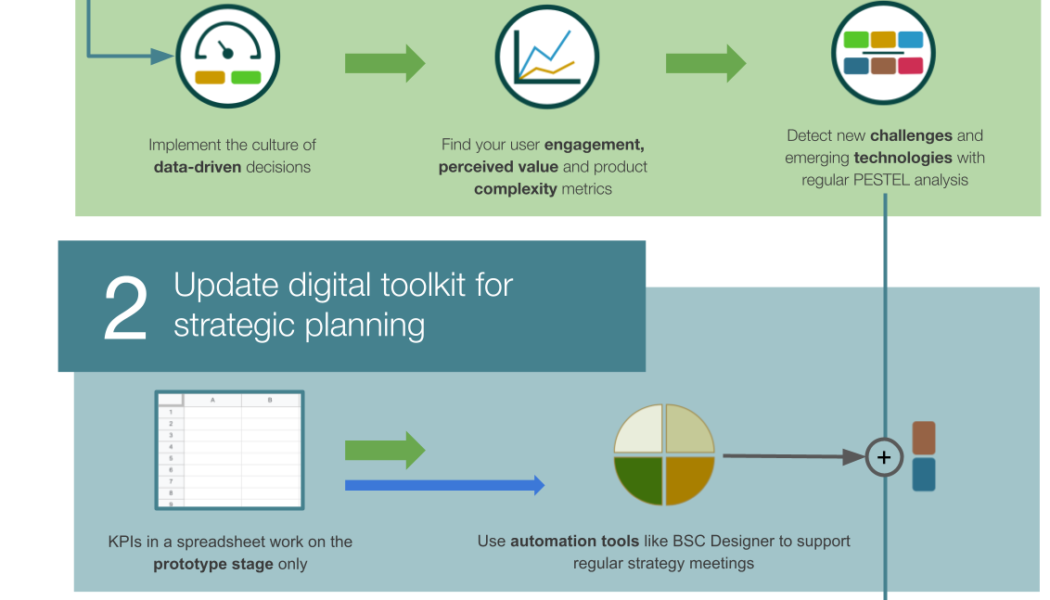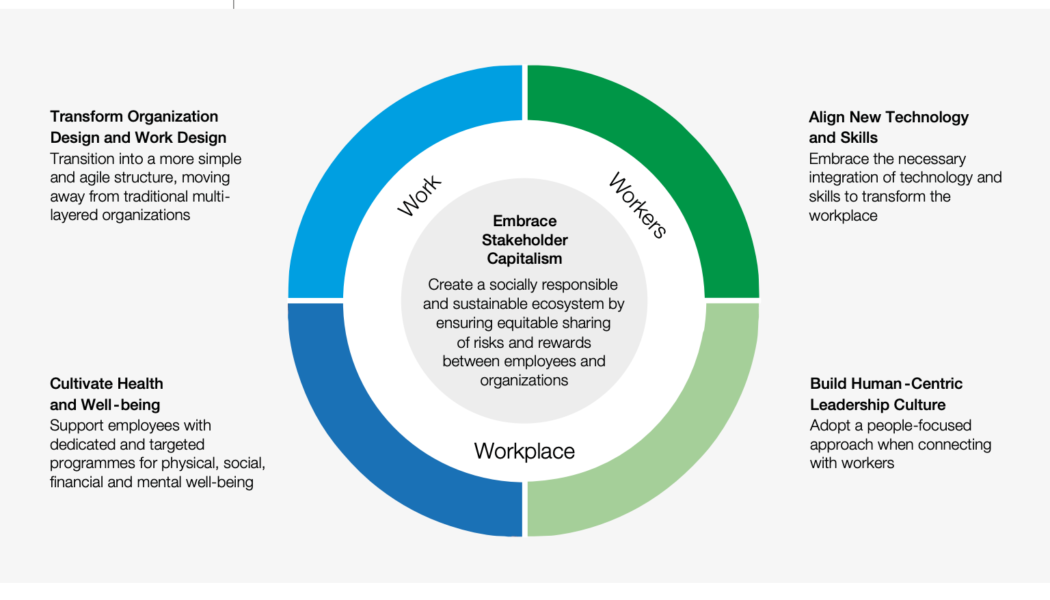Digital Transformation News
How to Create a Digital Transformation Strategy that Actually Works
The working world has changed drastically. Today, survey after survey shows workers want a hybrid work model. But what does the future workplace look like and how can organisations create a digital transformation journey that fits the new paradigm? Marilyn Moodley, Country Leader for South Africa and WECA (West, East, Central Africa) at digital transformation specialist SoftwareONE, says the working landscape has changed forever. “While the idea of a digital workplace has been taking shape for several years, the start of the pandemic accelerated the trend where we witnessed over three years’ worth of digital transformation in just three months. Organisations across the globe are trying to fine-tune their hybrid work environment. Doing so often requires a faster transition to a digital work...
The Mindset Needed for a Successful Digital Transition
Digital transformation is not a new concept, and South African businesses have steadily evolved and increased their inclusion of digital tools over time, with a faster influx happening over the past three years. The adoption rate has accelerated due to the pandemic. Businesses were forced to adopt new ways of working, and digital transformation forms part of that. In some industries, readily available client options have increased as internet speed has also improved. But how do companies determine what kind of digital intervention is needed for their business and who to partner with? According to Ian Nel, Strategic Planning & Programs Director at Canon Southern Africa, it comes down to people, process and then technology. “Digital adoption starts with understanding the needs of the env...
How Mobile is Leading the Charge in Connecting Africa’s Unconnected
Kegan Peffer, CEO of tech startup Adoozy Power. Digital innovations are transforming every aspect of life on the African continent, from healthcare to agriculture; education to transit and logistics; from finance and commerce to media and entertainment. As Africa’s trailblazing fintech solutions have already proven, there’s limitless potential to solve intractable socio-economic problems; to leapfrog costly infrastructural development, and start providing services and products to non-consumers. All of this depends on connectivity. Mobile Connectivity in Africa According to the International Finance Corporation (IFC) of the World Bank more than 520 million Africans were connected to the internet by 2021, that’s 40% of all Africans, considerably less than global standards. Across the va...
Digital Transformation in South Africa – The Future is Bright for Healthcare Innovation
The last two years have awakened many people across the globe to the benefits of digitization, with the pandemic effectively working as an accelerant growing the importance of the digital transformation of the healthcare industry in particular. It makes sense that healthcare continues to be one of the most continuously evolving industries in the world. No longer are doctors prescribing broad-spectrum medicines to treat generic illnesses. Nowadays, and especially after the pandemic of the last two years, we are entering a time of personalised medicines and m-health (mobile health), a time of telehealth and robot surgeons, and along with this we are seeing the rise of consumer-focused digital pharmacies, pharmacies that are allowing patients to access healthcare virtually and order medicatio...
Julie Snell of the Scotland 5G Centre Joins This Expert Line-up of Speakers at the #DTF2022
Julie Snell, Chair of the Scotland 5G Centre, is set to speak at the upcoming Digital Transformation Forum 2022 held in Sandton, Johannesburg, South Africa on 31 May 2022 at the Maslow Hotel. Julie Snell, Chair of the Scotland 5G Centre, is set to speak at the upcoming Digital Transformation Forum 2022 held in Sandton, Johannesburg, South Africa on 31 May 2022 at the Maslow Hotel. This hybrid event will see industry experts come together to tackle ideas on how to navigate the future-of-work, future-of-integration, connected digital experience, data management, and digital innovation strategies all in efforts to prepare your business for its successful digital transformation journey. Snell has 35+ years of experience as a business leader having successfully established new technology market...
How Co-Creation Will Address the Urgent Need for Digital Transformation in SA
Ria Pinto, General Manager and Technology Leader – IBM South Africa. While organisations in South Africa cannot be entirely ready for the next crisis – to better prepare for future threats requires new way of driving flexibility and delivering innovation. With the rapid changes we’ve witnessed over the past two years, organisations in South Africa now realise they have to be flexible and transform quickly during the next crisis and that this requires collaboration, flexibility and urgency. Key to this approach is adopting and accelerating co-creation and agile ways of working. While digitisation was important before COVID-19 disrupted the world as we knew it, now, it’s non-negotiable. Now, organisations have no doubt that technologies like hybrid cloud and AI are not optional, but essentia...
How CFOs & CIOs are Funding Digital Transformation with OPEX, not CAPEX
Zakhe Khuzwayo, co-founder and CFO at InnoVent. CFOs and CIOs, collaborating to drive the accelerated digital transformation necessitated by rapid technology advances and COVID-19, now have a smart alternative to traditional financing and management of IT assets that boosts business efficiencies and competitiveness. Rapid technology advances driving the 4IR (Fourth Industrial Revolution), as well as the impact of COVID-19, has accelerated digital transformation in organisations, transforming IT overnight from a back-end support function into an essential enabler for all business operations. Such a shift requires greater access to top technology, resulting in IT spending reaching an all-time high as organisations swop offices for work-from-home and virtual meetings; physical shops for e-com...
The 2 Challenges that SA’s “Culture of Digitalisation” Faces
Image sourced from Harvard Business Review. Technology is only successful if it is used. And today, business leaders in companies around the world need to shift from a tech-centered view of digitalisation and start considering how to nurture a culture that embraces technology wholeheartedly. This shift is becoming increasingly urgent because mobilising teams, channeling resources, and accelerating learning and development doesn’t happen overnight, but on the other hand, disruption can strike fast. It’s better to be ready and adaptable to the future, both resource-wise and also culturally, than risk being unable to compete. Many early adopting businesses are already some way down this path, for instance automating processes to improve product and service experiences, maintain business conti...
Remote Work Highlights the Real Problems with Paper-Based Processes
Image sourced from Pazo. Despite the rapid move towards remote work during the pandemic, even COVID-19 hasn’t been able to kill off paper in the enterprise. The result is that most businesses are facing the twin challenges of ensuring that remote employees manage hardcopy documents with due regard for security and making it easy for them to share documents with each other in remote or hybrid working environments. This is according to Robert Crowther, CEO of FCTEC, a specialist in digitisation and electronic content management solutions. He says that despite years of hype about the paperless office, paper has endured because there are still many business processes that depend on paper being signed and scanned to comply with legislation. What’s more, most businesses also have many important ...























